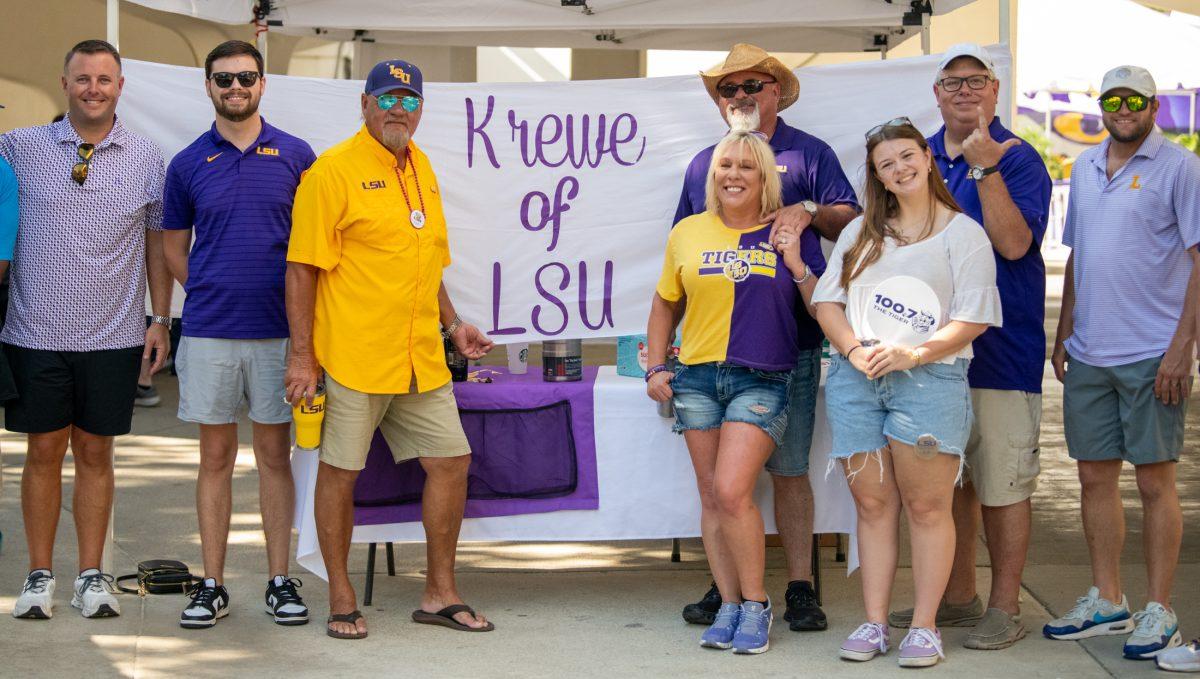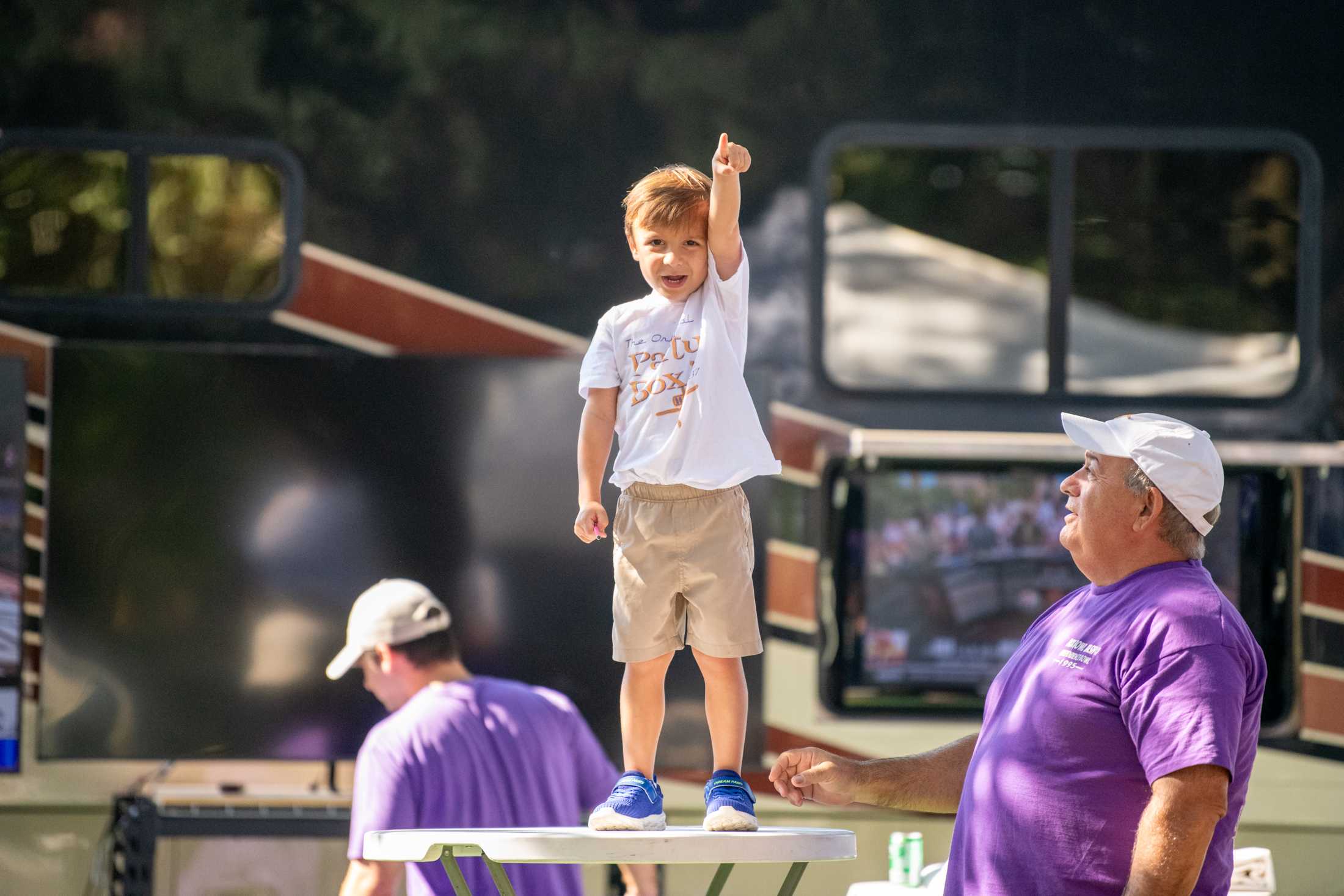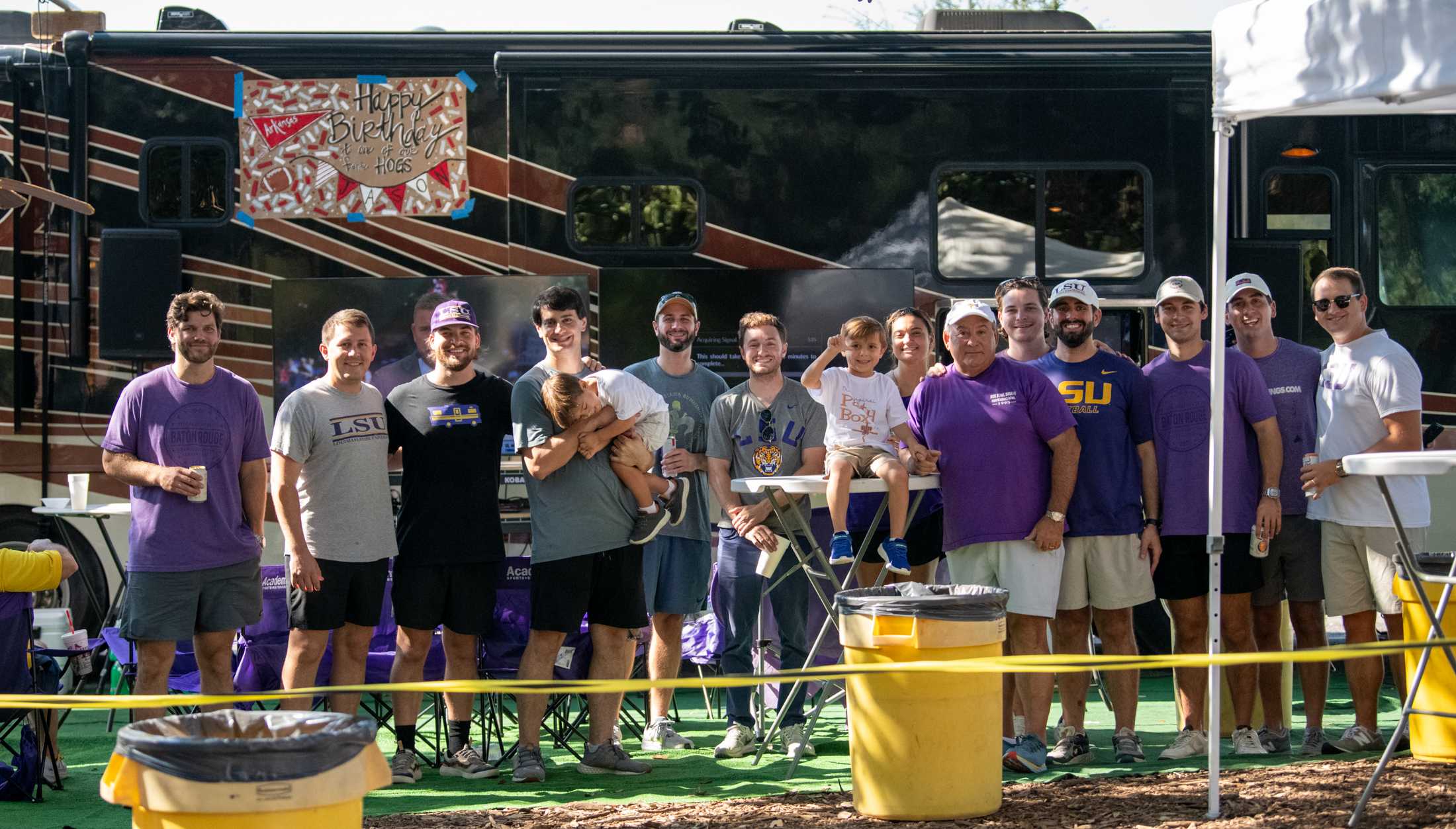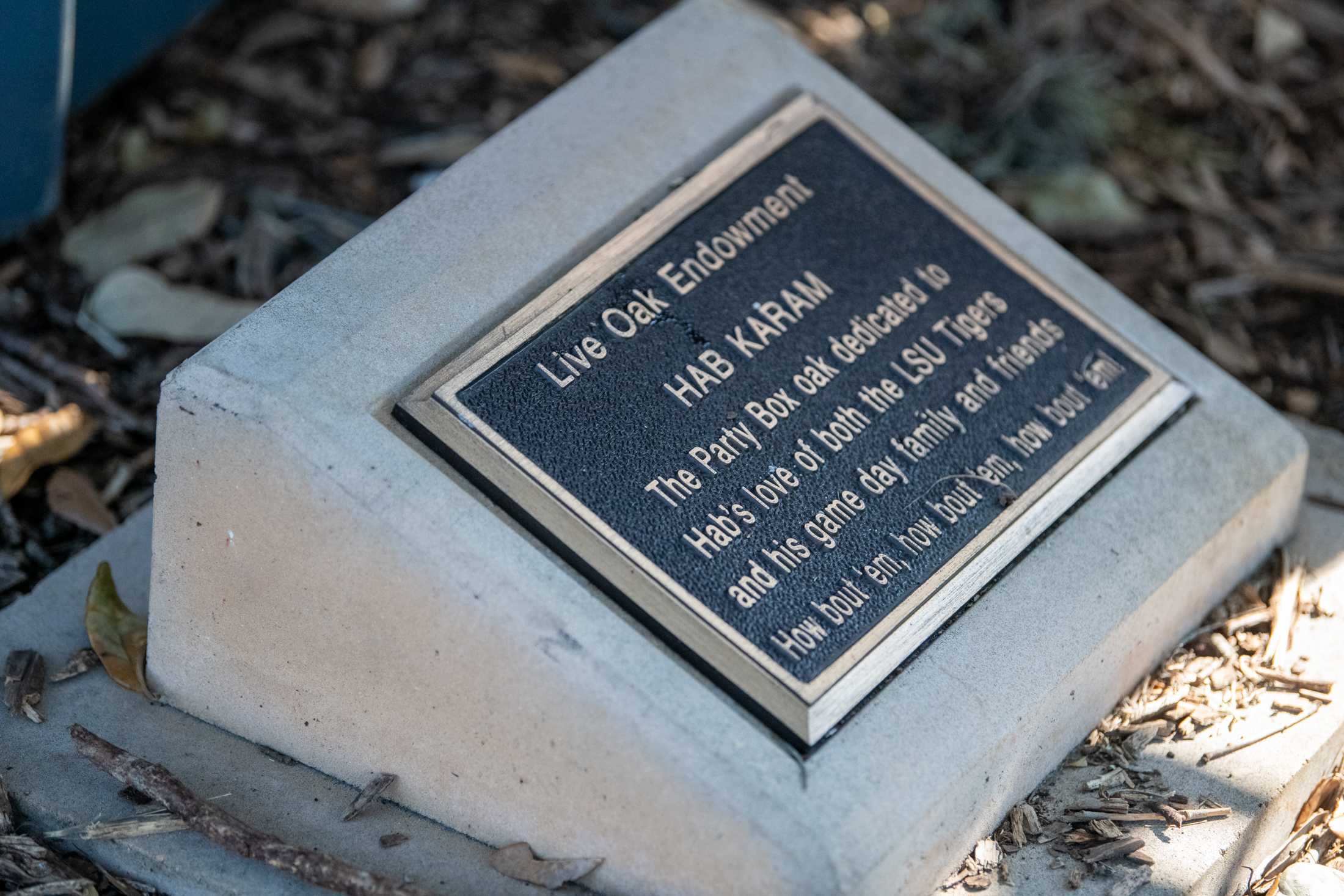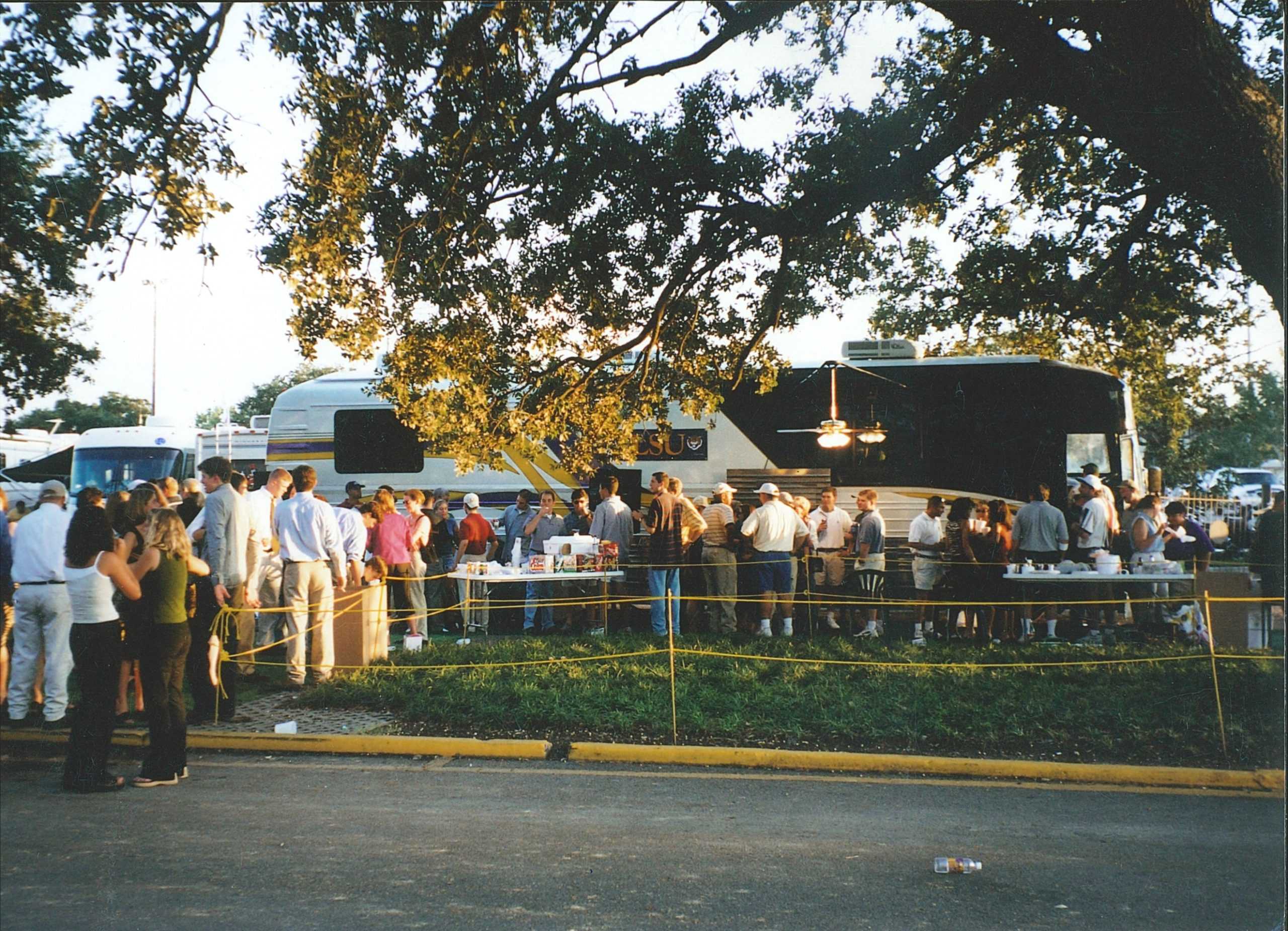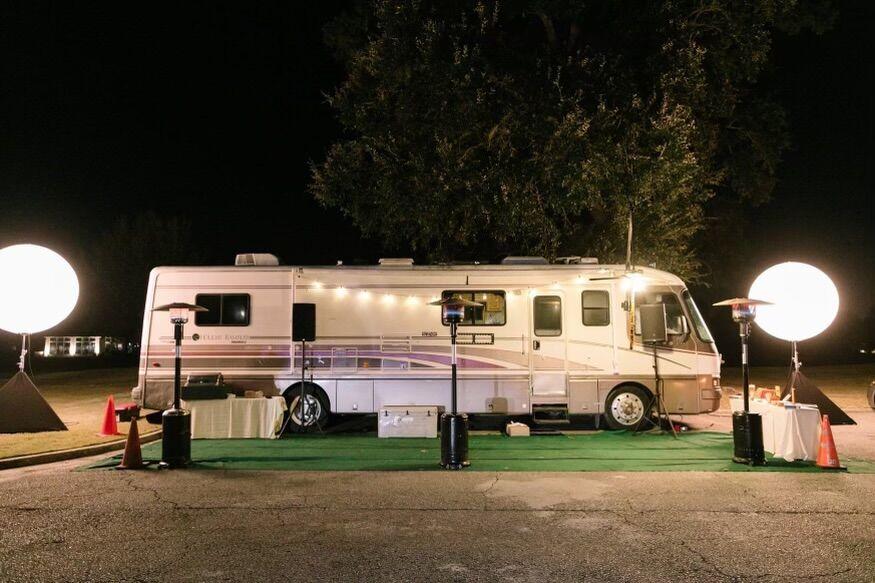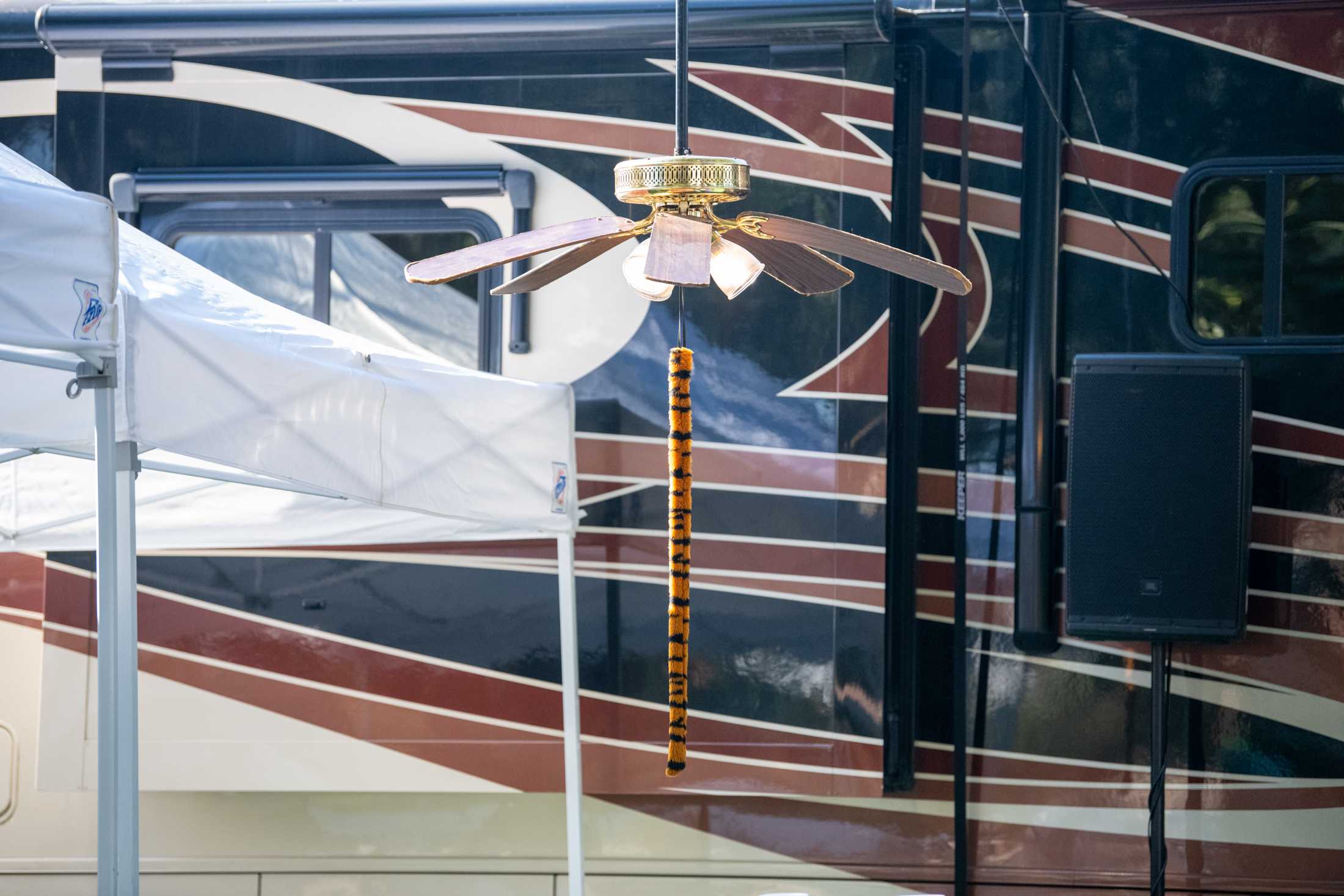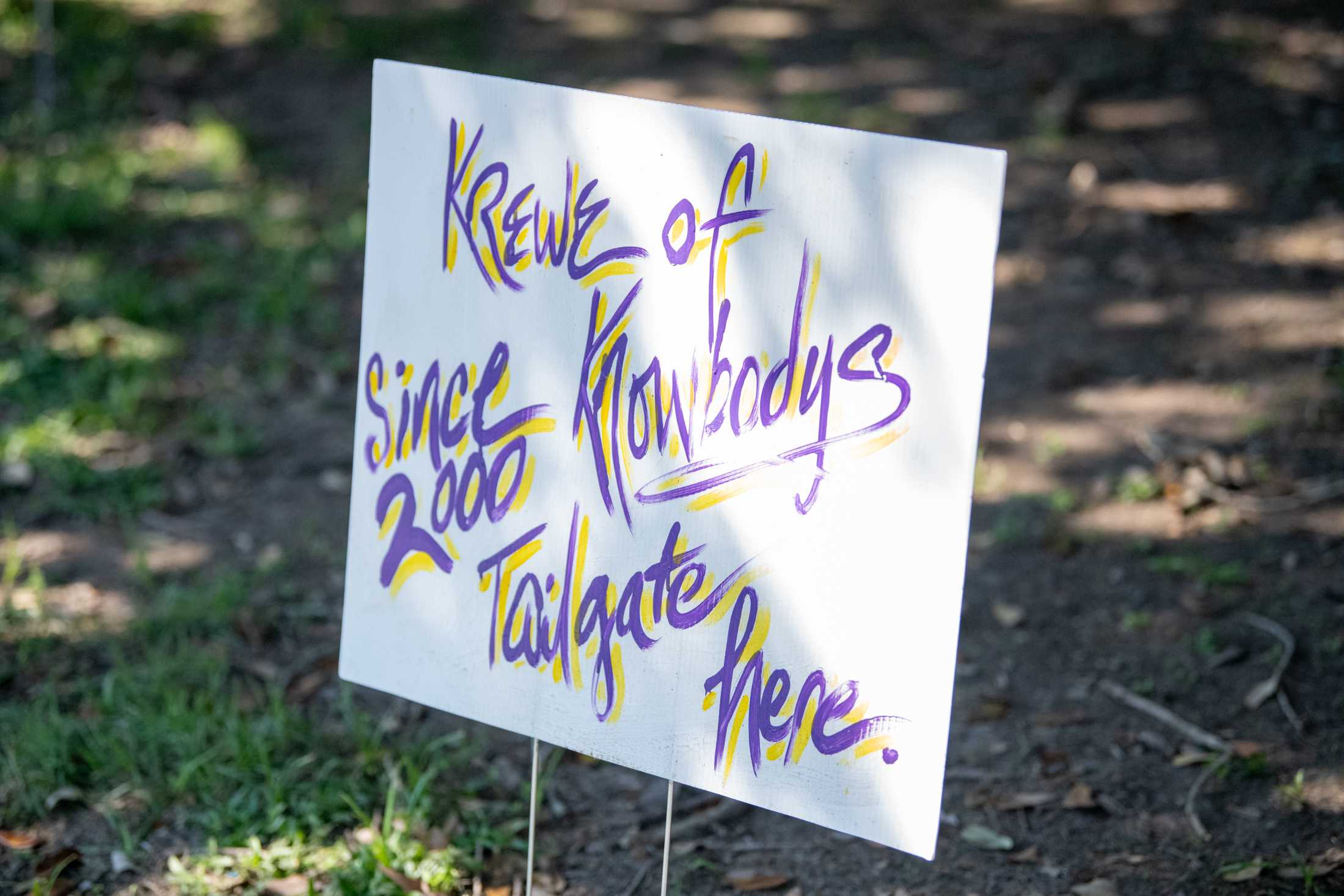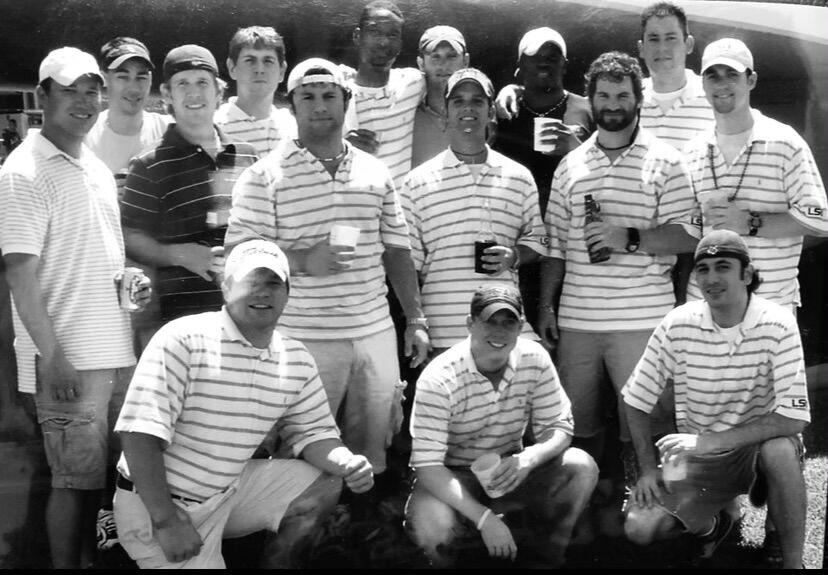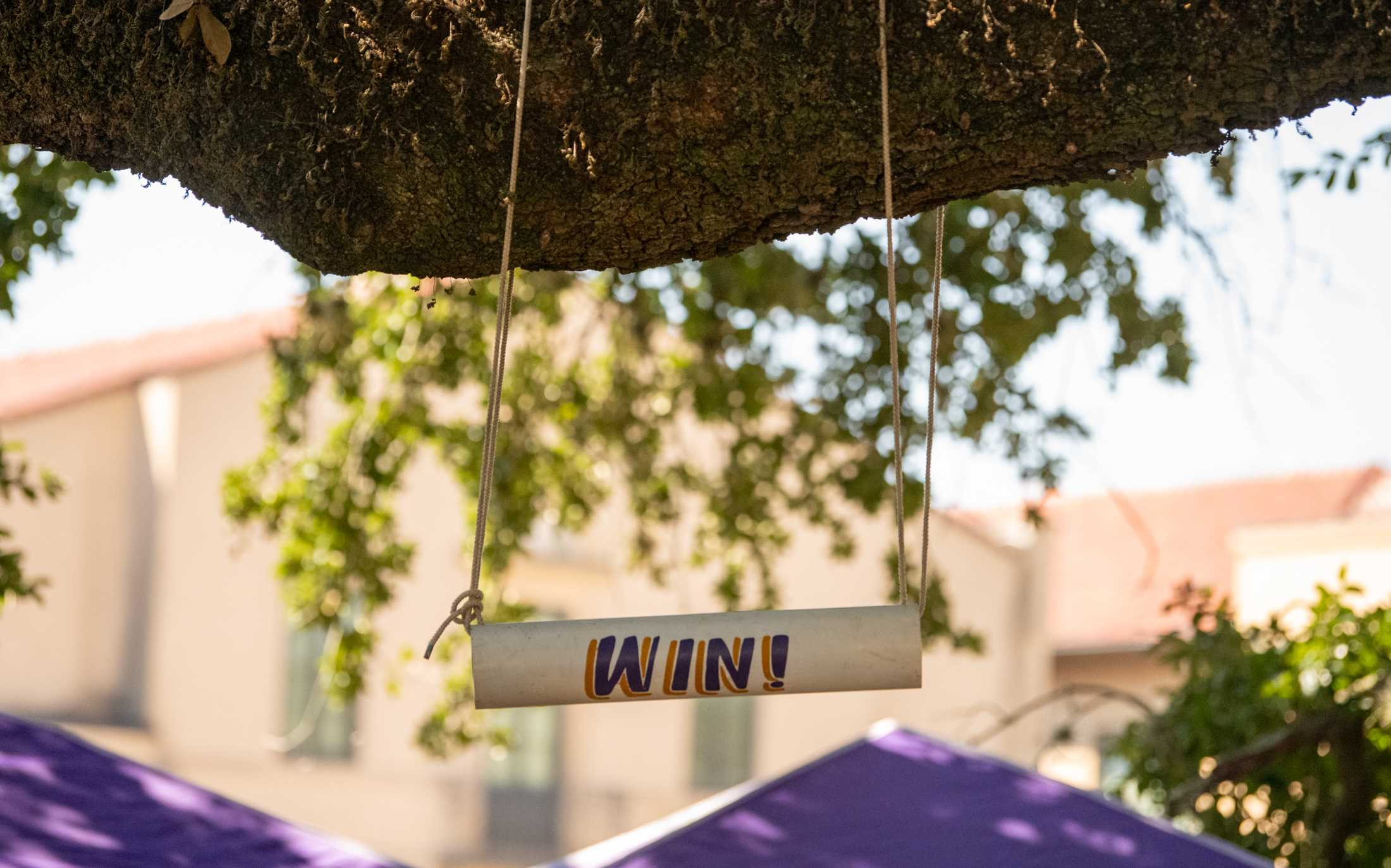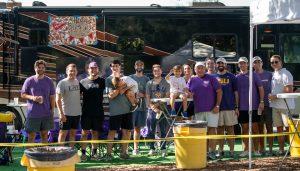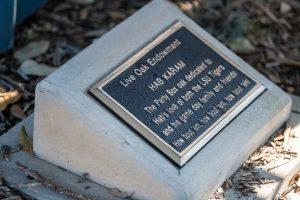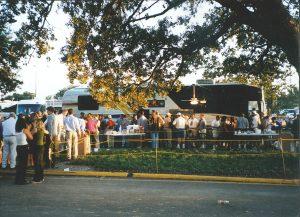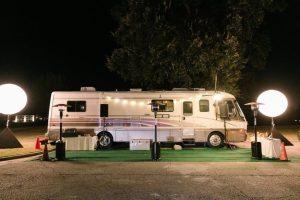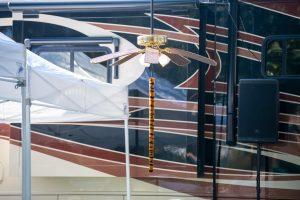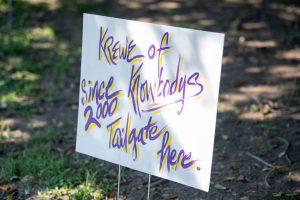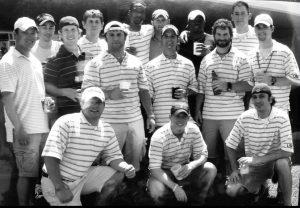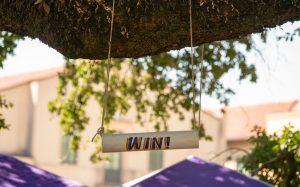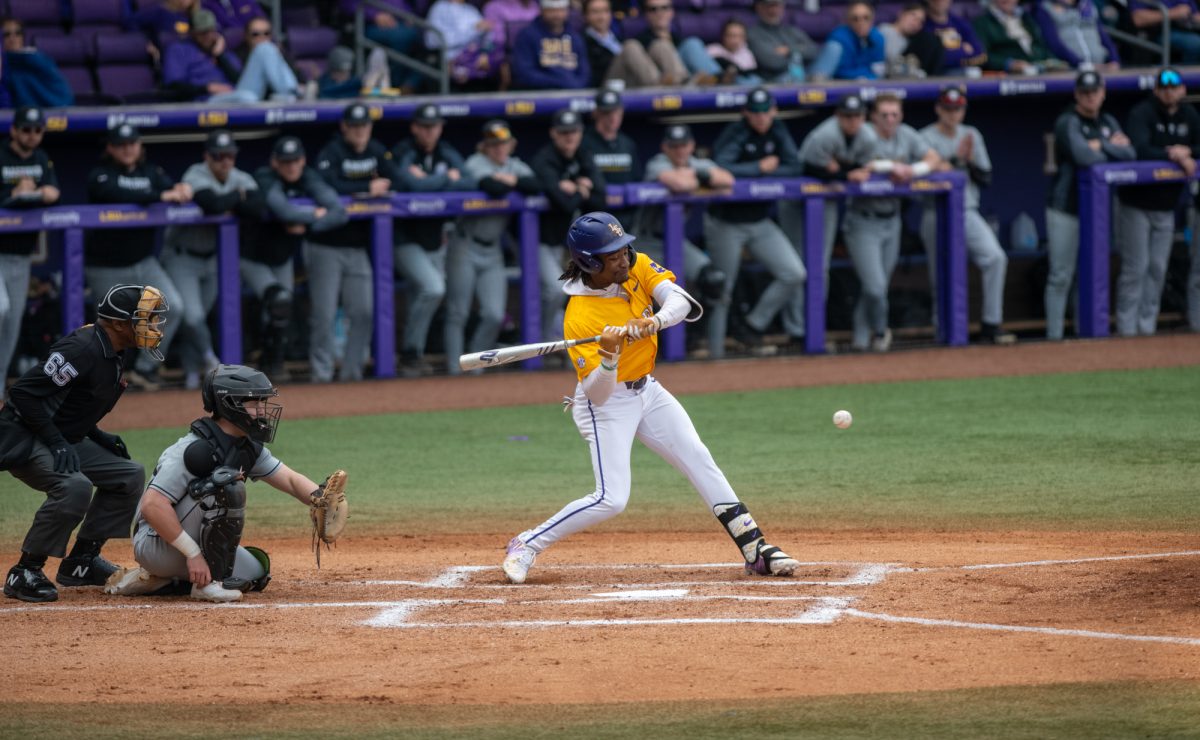The air is thick with humidity and the smell of old-fashioned American style cookouts rolls down the streets of LSU’s campus. The music can be heard from miles away as tents, trailers and trucks sit at the edge of the Tiger Stadium, housing those who gather to celebrate LSU football.
Whether it’s rain or shine, blistering heat or a chilly breeze, thousands of fans show up and show out at every home game to tailgate around campus. This tradition hit its stride after LSU’s undefeated National Championship season in 1958.
For the last 66 years, students, alumni, family members, and friends have found a spot on campus, pitched a tent or let down the tailgates of their trucks, served food and drinks while taking in each other’s company and made lifelong memories within the sense of community that LSU establishes.
The passion that drives fans was seen even in a heat index of 100 degrees Fahrenheit as LSU took on the UCLA Bruins on Sept. 21. The same massive crowds of people still showed up for their regular tailgates.
The Reveille took this opportunity to have one-on-one interviews with different tailgating parties – whose members showed up as early as 8 a.m. to prep for game day – to capture the history of LSU tailgating and how its culture forms such a unique community.
The Krewe of LSU
Led by treasurer of the National L Club Ben Bergeson, the Krewe of LSU has been tailgating underneath the right-side ramp of the PMAC for 15 years now. However, several members of their party have a history of attending and tailgating at LSU home games for 20 years prior to finding their traditional spot.
Bergeson first moved to Baton Rouge in 2004, where he pursued a position in equipment management for LSU’s football team and later attended the university in 2005 for his bachelor’s degree in science and business administration.
“Seeing the tradition of tailgating on Saturdays while I was working for the football team – I couldn’t wait to graduate and get out here and join everyone.” Bergeson said.
Members of the Krewe of LSU consist of both family and friends, people that Bergeson has made fond memories with over the years while forming his own traditions.
One of those traditions carries into the food and the drinks Bergeson serves at his tailgate, something he feels separates their party from others. He staffs his tent with his own personal bartender while he throws home-cooked recipes on the grill.
“We don’t buy any of our food pre-made. Everything everyone eats is cooked at the tailgate or the night before,” he told the Reveille.
While tailgating, of course, surrounds football, Bergeson expressed that even if there wasn’t a game to go to, he and the Krewe of LSU would likely gather around their houses on Saturdays just to celebrate being with one another.
“It’s the southern tradition of coming out here and being around your tailgate family,” Bergeson said.
In passing on that tradition, Bergeson has brought his four- and nine-year-old daughters to every LSU game they can remember, hoping that they will inherit the joy he has found in being a part of a tailgate family like no other.
The Party Box
Inspired by both tailgating with his uncle and participating in fraternity tailgates as a member of Phi Gamma Delta, Hab Karam joined together with his brothers and a small group of friends in 1987 to form “The Party Box” tailgate, a passionate celebration of friends, family and LSU football.
The Karams and co-founder Otey White, amongst several others, certainly planted a tree of memories after their time at LSU – a tree that has only grown through more than three decades’ worth of tailgating.
You’ll find White’s name within the pages of the Reveille archives, where he served as the acting editor-in-chief in the spring of 1983.
Alongside White’s work, on the corner of South Stadium and Nicholson Drive lies a placard beneath a spiraling oak tree dedicated to Karam from his wife, given to him as a 60th birthday present.
This placard marks the family’s lot, where they have hosted infamous tailgates with an attendance record of up to 250 people at once.
The Karams are a second generation LSU family, where all five of Hab’s siblings – including himself – have graduated from LSU. Their legacy with the university continues in their children, where seventeen out nineteen children split between the six of them have also graduated from the university.
While Karam is decidedly the Party Box’s present leader, he is slowly passing down his tailgate to his nieces and nephews, two of them being Robert Karam and Robbie Mahtook.
The both of them graduated from LSU in 2014 and during their senior year, they attended the university alongside 14 of their cousins. Since graduation, the two of them have had families of their own, and they now bring their children to the Party Box.
“There’s a sense of purpose and responsibility to make sure that we give our children the same thing that our parents and uncles gave us,” Mahtook said.
With such a massive group of people, the Party Box has quite the crowd on game day, just as they’ve had for years.
“We’ve never missed a home since 1987,” Robert told the Reveille.
But the significance of their family’s tailgate goes beyond being there to support the Tigers. It’s also found in what physically makes up the Party Box: the box itself.
Since purchasing their first motorhome for tailgating – a 1976 Winnebago – the Karams are now on bus No. 5. Each bus has held hundreds of memories, ranging from birthdays to office parties to even wedding receptions.
While they’ve never had the opportunity to have a wedding reception at an LSU tailgate, they drove bus No. 4 to Robert’s wedding several years ago, quite literally carrying their memories with them.
“My son will have his second birthday party here for the Vanderbilt game,” Robert said. “So it’s a family tradition for sure.”
While their dedication and love for bringing their tailgating family together is certainly rewarding, that isn’t the tradition that separates them from other tailgates.
“Our calling card for the tailgate is the ceiling fan,” Robert said.
Whether you’re walking down Nicholson Drive, or heading to the Party Box itself, it’s hard not to notice the plush tiger tail dangling from a ceiling fan over the bus.
Shortly after Karam first started tailgating, he and his friends would camp out their spot overnight, where they needed a source of light. They came up with the idea to position a ceiling fan and a tiger tail on one of many trees around them, and thus their tailgating tradition was born.
“It’s been hanging there every game since ‘89,” Karam told the Reveille.
As one of the Party Box’s constants throughout years of evolution in recipes, buses and equipment, the ceiling fan and tiger tail is one of the many things both Robert and Robbie look forward to passing down to their children.
“It’s important for us to continue to do that,” Mahtook said. “So in 20 or 16 years from now when my kids are at LSU, they can come and have the same experiences that we had.”
When it comes to being part of such a unique community, the Party Box represents what it means to be an LSU family through and through, and they intend to carry that with them forever.
“LSU tailgate culture is head and shoulders above the rest,” Robert said. “Everybody has their own traditions that make them unique, and that’s what makes LSU the best.”
The Krewe of Knowbodys
If you’ve ever passed through the parade grounds on game day, chances are you’ve seen the Krewe of Knowbodys’ tent pitched in the same spot for the past 24 years.
“I tailgate more than I go to the games,” said 2000 LSU alumnus Jared Breaux. “Every now and then I’ll go to a game, but for the most part, this is the most important thing.”
Breaux graduated from LSU with a degree in education and first began tailgating with his friends at the PMAC, where all of them worked. However, after graduating, the rates for a tailgating spot severely increased, and Breaux had to relocate to a more affordable area.
That’s when he found his spot across the street from the fraternity tents, just below Memorial Tower, and he’s been there ever since.
“At first it was just a bunch of guys,” Breaux said. “And one of them said that we were the crew of nobodies, because we knew a lot of people but we weren’t anyone spectacular.”
While most of all the original members from the tailgate have gone their separate ways, Jared has remained and has grown in how he has cheered on the Tigers over the years.
“We went from keg stands to families,” Breaux told the Reveille. “Now my 17-year-old daughter helps me set up every game day.”
Including his wife and kids in the celebration every fall is one of Breaux’s favorite part of being an LSU fan because he gets to share his traditions with them.
The biggest of those traditions is playing the song “It’s a Great Day to be Alive” by Travis Tritt over their loudspeakers.
“We normally get in a big circle and sing it at every tailgate,” Breaux said. “It’s our theme song.”
Watching his children grow up around his tailgate has been incredibly rewarding for Breaux, especially now that his oldest daughter will start at LSU as a freshman next fall.
Breaux mentioned it is also important that their tailgate reaches out to those around them, welcoming anyone and everyone to have a good time, even fans of the opposing team.
“We want everyone to have a good time,” he said. “At the end of the day, that’s all that matters.”
Tailgating is something that is truly unique to the south. LSU, however, has taken tailgating culture and made it into something special.
If you don’t get the chance to go to the game on Saturday, take the time to feel the passion and embark on the traditions that call LSU’s campus home, because there is nothing like witnessing a community of people come together in celebration of one another.


